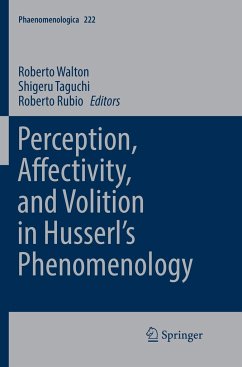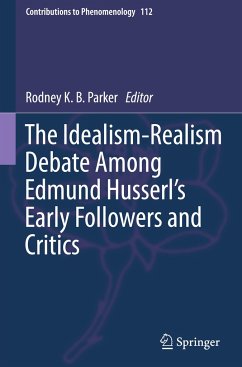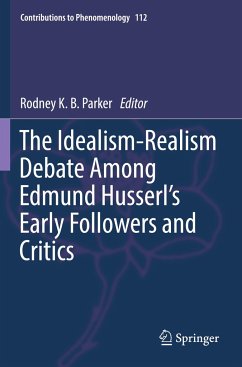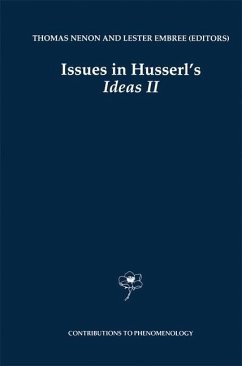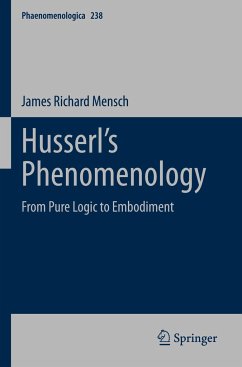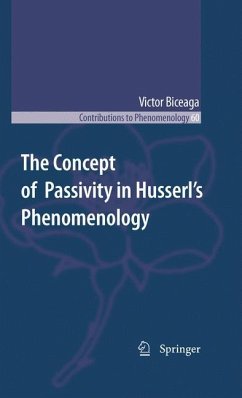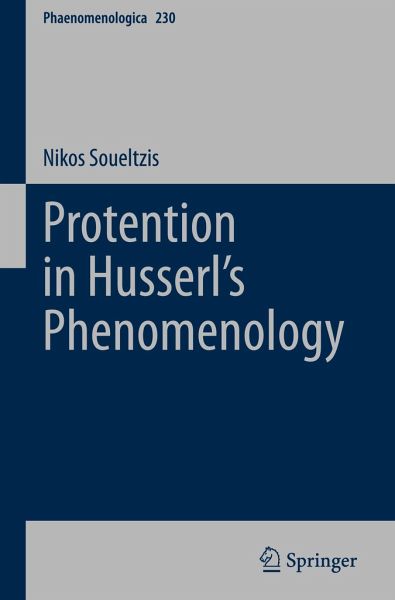
Protention in Husserl's Phenomenology
Versandkostenfrei!
Versandfertig in 6-10 Tagen
83,99 €
inkl. MwSt.
Weitere Ausgaben:

PAYBACK Punkte
42 °P sammeln!
Every attempt to examine our consciousness's passive life and its dynamic in its various forms inevitably intersects with our primal awareness of the future. Even though Husserl's theory of time-consciousness enjoys a certain fame, his conception of our primordial relation to the future has not been adequately accounted for.The book at hand aims to offer a close study of Husserl's view of protentional consciousness and to trace its unique contribution to our overall awareness of time. It offers an extensive analysis of various aspects of protention by investigating its connection to different ...
Every attempt to examine our consciousness's passive life and its dynamic in its various forms inevitably intersects with our primal awareness of the future. Even though Husserl's theory of time-consciousness enjoys a certain fame, his conception of our primordial relation to the future has not been adequately accounted for.
The book at hand aims to offer a close study of Husserl's view of protentional consciousness and to trace its unique contribution to our overall awareness of time. It offers an extensive analysis of various aspects of protention by investigating its connection to different fields and levels of experience. To achieve such a task, the book stresses the need to enrich the familiar formal account of protention with a material one. Thus, alongside issues pertaining exclusively to the form of protention, such as its relation to fulfillment as well as its double-intentional structure, various other dimensions are discussed, such as the phenomena of disappointment and correction as well as the role hyle plays in both of them. In the same vein, special attention is given to the relation between protentional consciousness and affectivity, thus shedding light on the dynamic unity of our living-present.
What this study purports to show is that Husserl's phenomenology is equipped to offer a solid account of the thinnest and subtlest ways in which we are aware of the future in our experiential life.
The book at hand aims to offer a close study of Husserl's view of protentional consciousness and to trace its unique contribution to our overall awareness of time. It offers an extensive analysis of various aspects of protention by investigating its connection to different fields and levels of experience. To achieve such a task, the book stresses the need to enrich the familiar formal account of protention with a material one. Thus, alongside issues pertaining exclusively to the form of protention, such as its relation to fulfillment as well as its double-intentional structure, various other dimensions are discussed, such as the phenomena of disappointment and correction as well as the role hyle plays in both of them. In the same vein, special attention is given to the relation between protentional consciousness and affectivity, thus shedding light on the dynamic unity of our living-present.
What this study purports to show is that Husserl's phenomenology is equipped to offer a solid account of the thinnest and subtlest ways in which we are aware of the future in our experiential life.




